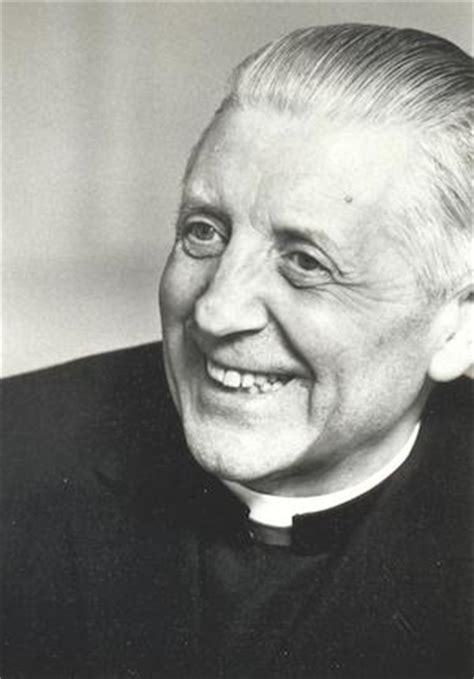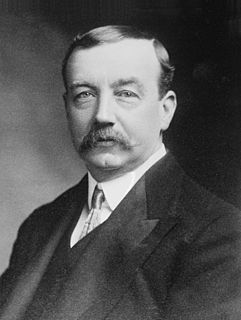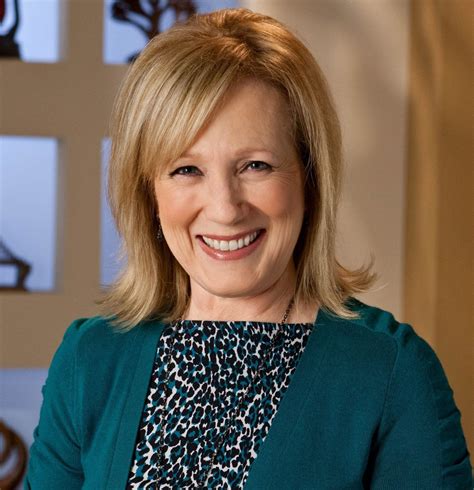A Quote by Richard Rohr
The theological virtue of hope is the patient and trustful willingness to live without closure, without resolution, and still be content and even happy because our Satisfaction is now at another level, and our Source is beyond ourselves.
Related Quotes
In order to settle down in the quiet of our own being we must learn to be detached from the results of our own activity. We must be content to live without watching ourselves live, to work with expecting immediate reward, to love without an instant satisfaction, and to exist without any special recognition. It is only when we are detached from ourselves that we can be at peace with ourselves.
We may live without poetry, music and art; We may live without conscience, and live without heart; We may live without friends; we may live without books; But civilized man cannot live without cooks. . . . He may live without books,-what is knowledge but grieving? He may live without hope,-what is hope but deceiving? He may live without love,-what is passion but pining? But where is the man that can live without dining?
And yet many of us do it without families," Nynaeve said. "Without love, without passion beyond our own particular interests. So even while we try to guide the world, we separate ourselves from it.We risk arrogance, Egwene. We always assume we know best, but risk making ourselves unable to fathom the people we claim to serve.
Could many of our ills today have resulted from our failure to train a strong citizenry from the only source we have - the boys and girls of each community? Have they grown up to believe in politics without principle, pleasure without conscience, knowledge without effort, wealth without work, business without morality, science without humanity, worship without sacrifice?
If love is the soul of Christian existence, it must be at the heart of every other Christian virtue. Thus, for example, justice without love is legalism; faith without love is ideology; hope without love is self-centeredness; forgiveness without love is self-abasement; fortitude without love is recklessness; generosity without love is extravagance; care without love is mere duty; fidelity without love is servitude. Every virtue is an expression of love. No virtue is really a virtue unless it is permeated, or informed, by love.
Instead of loving a God, we love each other. Instead of the religion of the sky-the religion of this world-the religion of the family-the love of husband for wife, of wife for husband-the love of all for children. So that now the real religion is: Let us live for each other; let us live for this world without regard for the past and without fear for the future. Let us use our faculties and our powers for the benefit of ourselves and others, knowing that if there be another world, the same philosophy that gives us joy here will make us happy there.
Hope is critical to both faith and charity. When disobedience, disappointment, and procrastination erode faith, hope is there to uphold our faith. When frustration and impatience challenge charity, hope braces our resolve and urges us to care for our fellowmen even without expectation of reward. The brighter our hope, the greater our faith. The stronger our hope, the purer our charity.
Is it not enough that we cannot make one another happy, must we also rob one another of the pleasures that any heart may permit itself now and then? And name me a person who in a bad mood will be decent enough to hide it, to bear it alone, without destroying the joy around him. Is it not rather an inner dissatisfaction with our own unworthiness, a dislike of ourselves that is always associated with envy aggravated by foolish conceit? We see people happy and not made happy by us, and that is unbearable.
Muscles without strength, friendship without trust, opinion without risk, change without aesthetics, age without values, food without nourishment, power without fairness, facts without rigor, degrees without erudition, militarism without fortitude, progress without civilization, complication without depth, fluency without content; these are the sins to remember.
We all faced painful ethical challenges before we even knew how to spell our names. There were tough choices. Tradeoffs. Confusing signals regarding how to live one's life. And here we are now, today, still struggling. Still trying to sort things out. Still trying to work our way through life effectively. About the only thing that has changed is the scope of the problem. There's more at stake now. And we're in a position, as grownups, to do a lot more-good or bad-for ourselves, our organization, our world. But we still must wrestle with our imperfect ethics.
That's the essence of our faith. It's living with hope in the face of mystery. We live a life of faith completely full of hope, staring mystery right in the face. You can't have one without the other. Your faith won't survive without hope, and hope won't survive without the realization that there are mysteries that will not be answered. If you can embrace both, you can have a vibrant faith.





































